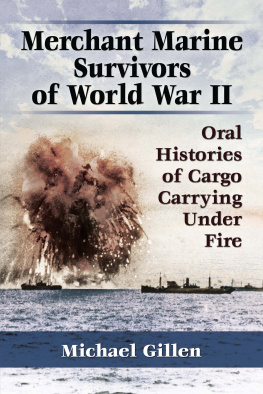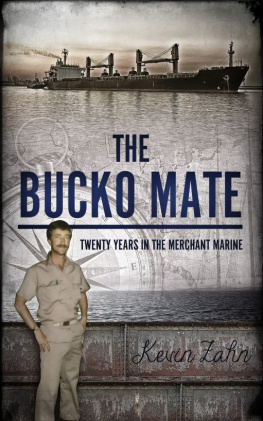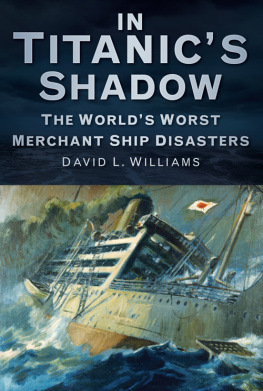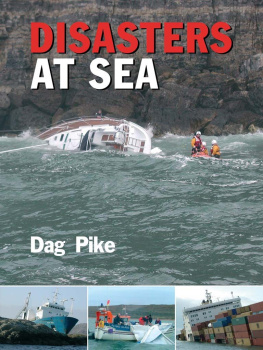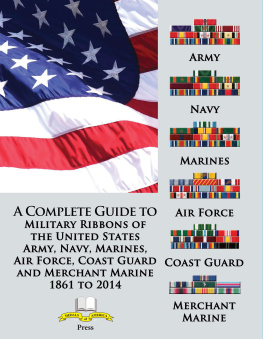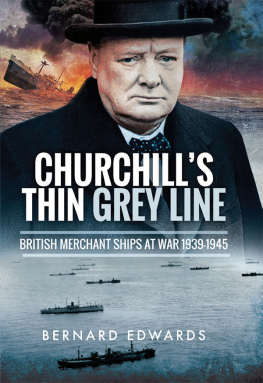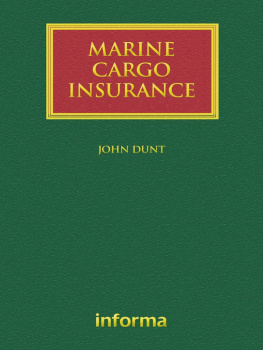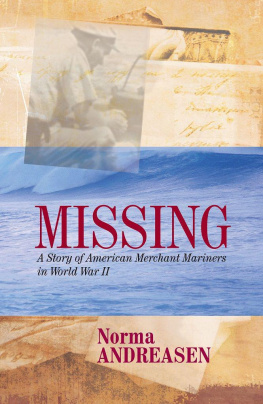
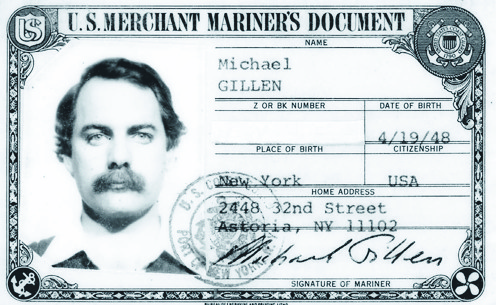
Merchant Marine Survivors of World War II
Oral Histories of Cargo Carrying Under Fire
Michael Gillen

McFarland & Company, Inc., Publishers
Jefferson, North Carolina
A Note to the Reader: This is an oral history of the U.S. Merchant Marine in World War II and, as such, most of what you will read here will be taken directly from transcripts of the voices of the seamen themselves on tape. To retain authenticity little has been changed, except where, to reduce confusion, a word or two has been added [in brackets]. Also, to reduce repetition, words have been cut in certain instances. But the color of the language has been retained, whether that be a certain regional inflection, or usage of an occasional indelicate expression at which some merchant seamen are known to be particularly skilled.
Frontispiece: The author as he appeared on a U.S. Merchant Mariners Document, 1980 (collection of Michael Gillen).
LIBRARY OF CONGRESS CATALOGUING DATA ARE AVAILABLE
BRITISH LIBRARY CATALOGUING DATA ARE AVAILABLE
e-ISBN: 978-1-4766-1887-6
2015 Michael Gillen. All rights reserved
No part of this book may be reproduced or transmitted in any form or by any means, electronic or mechanical, including photocopying or recording, or by any information storage and retrieval system, without permission in writing from the publisher.
Front cover: SS Mary Luckenbach, loaded with ammunition, explodes with loss of all hands after being struck by aircraft torpedo in Convoy PQ-18 to North Russia, September 1942. See Chapter 16 for an eyewitness account (War Shipping Administration).
McFarland & Company, Inc., Publishers
Box 611, Jefferson, North Carolina 28640
www.mcfarlandpub.com
To the Merchant Marine veterans of World War II
who participated in this project,
and to all others who served
in the U.S. Merchant Marine during that war
Acknowledgments
It takes a crew, and though the writing of a book is very much a solitary experience, moving it ahead after a long voyage to safe harbor usually involves many people. For their participation and input in any form to bringing this book to fruition, I am especially grateful to the following:
Howard Bethell, a Merchant Marine veteran of World War II who figures prominently here (Chapter 2), and probably got me going on this project in the first place simply by telling his storyin a way that only he could. He was a friend, had a keen sense of history, and was an early supporter of Project Liberty ship.
W. D. Bill Ehrhart, poet, memoirist, teacher, and essayist of the Vietnam Warand then somea longtime friend, and once a merchant seaman himself, for offering to take a preliminary version of this project to McFarland, the publisher of his first Vietnam Warrelated memoir, Vietnam-Perkasie.
Captain Arthur C. Moore, another Merchant Marine veteran of World War II, for compiling his invaluable history of U.S. Merchant Marine ship and personnel losses during the war, A Careless WordA Needless Sinking (1983), for his friendship, words of encouragement, and guiding me to Stanley Gorski, subsequently interviewed for this project (Chapter 5).
John Gorley Bunker, maritime historian (The Liberty Ships, Heroes in Dungarees), Merchant Marine black gang veteran of World War II, friend and colleague at the Seafarers Union, and a mentor if ever there was one, for his encouragement in the early goings.
Dayl Koffler-Wise, my friend, best man at my wedding, and founder of Post Traumatic Press, which published an earlier chapbook version of parts of this oral history.
Eliz Anderson, National Liberty ship Memorial, San Francisco, for putting me in touch with Joanie Morgan.
Joanie Morgan, for providing photographs and documents relating to the life and long maritime career of her husband, Harry Morgan (Chapter 14), for her knowledge and sharp eye as proofreader of chapters relating to Harry, and Capt. Ed MacMichael (Chapter 11), with whom she worked on SS Jeremiah OBrien, National Liberty Ship Memorial, San Francisco, and for backing this project with a will. Joanie is a kindred spirit, devoted to the cause of ship preservation, currently involved with Steam Tug Hercules, to which her husband had also dedicated himself for a period of time, bringing the tug back to life.
Captain John L. MacMichael, Jr., USN, grandson of Capt. Ed MacMichael, for his interest, and for putting me in touch with his father.
Capt. John L. MacMichael, Sr., USN, retired, for his interest, invaluable assistance providing photographs and documents, and answering questions that relate to the life and service of his father.
Joanie Wittenburg, who, with the support of her brother, Henry Holt, responded enthusiastically to my initial request for assistance relating to their father, Jack Holt (Chapter 6), and provided photographs and documentation that proved to be very helpful.
Daniel J. Bradley, Jr., for his interest, and for providing photographs and information relating to the life and career of his father, Daniel J. Bradley (Chapter 2).
Audrey Ivey, for her and her sisters interest, and for providing photographs of their father, Capt. Edward March (Chapter 12).
John W. Zubrod, for his interest, and for providing the photograph of his father, Donald Zubrod (Chapter 20), which appears here.
Claudia Jew, Mariners Museum, for her great patience and help searching the vast photographic archives of the museum and providing many of the ship images that appear here.
Alissa Cafferky, Steam Ship Historical Society of America, for searching the photographic archives of the society and providing some of the ship images that appear here.
Professors Daniel J. Walkowitz and Paul Mattingly, New York University, for inviting me to participate with the initial class of their new Program in Public History at NYUwhich provided me with so much support as I pursued my doctoral degreeand who appreciated the importance of oral history methods and the work of many of us in that area.
Roger S. Durham, my longtime friend and the author of books about the American Civil War, for words of wisdom relating to writing and the publication process.
Edward William Blythe, my son-in-law, for his interest in this book, and for reading and commenting on several chapters of a late manuscript draft.
And to Fern Zeigler, my wife and soulmate, for her encouragement, keen eye, providing an environment that is a writers dreamand safe harbor otherwiseand for her love.
Preface: The Ship
The ship loomed ahead at a Hudson River pier as I made my way slowly southward in the morning mist along New York Citys West Side Highway. With its flush-deck profile, characteristically capped stack, and wartime gun tubs still in place, the ship was unmistakably a Liberty, a merchant cargo ship type built in unprecedented numbers in the United States during World War II.
This was early 1978more than 32 years after the end of the warand by then a Liberty ship was already a rare sight to behold, as most had been scrapped, relegated to a few boneyard reserve fleets, or converted by ignominious fate into such things as stationary fish processing plants. A few others were still tramping around the world, no doubt, under foreign flag, but they were few and far between, their days certainly also numbered.
Next page
